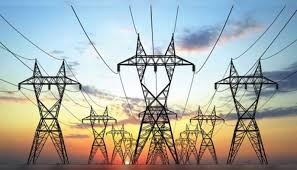
Opec’s restriction still Nigeria’s greatest obstacle towards achieving 2.2 million barrels in 2023—NNPC boss
Nigeria could attain 2.2 million barrels crude oil production level in 2023, but for the Organisation of Petroleum Exporting Countries (OPEC) oil production quota restriction, the group chief executive officer of the Nigerian National Petroleum Company, Mele Kyari, has said.
Mele Kyari who spoke at the virtual Global UAE Energy Forum said despite all odds, the country aims to produce 1.8 million bpd this year.
He said that Nigeria struggled to achieve its OPEC quota in 2022, stressing that the country had a “different challenge” from the rest of the world, as security issues undermined production.
“For us, we see a trajectory of restoring production, including condensates within the year definitely. And we believe that we can hit our target of 2.2 million barrels per day, although now our OPEC target is 1.8 million barrels per day. We know that it’s practical to do 2.2 million barrels per day.
“We took definite steps to increase production and this is paying off. Around July, our net crude oil excluding condensate came down to around 1 million bpd. That has been restored,” Kyari said.
According to him, the government has also taken very practical steps around pipeline security. In August 2022, a high-ranking federal government delegation struck a deal with a former militant-turned security contractor, Government Ekpemupolo, also known as Tompolo, to crack down on oil theft.
“It’s practical to hit 2.2 million bpd in 2023, this is practical. It’s a moving target,” Kyari said, adding, “There are a number of projects that I have clear line of sight that can come on board in 2023.”
Also speaking on the controversial petrol subsidy regime in the country, Kyari explained that the NNPC’s relationship with the government as of today is strictly on a commercial basis.
“NNPC has become a completely private company today. Yes, owned by the government, but it’s operating like every other company today, like Shell, Chevron and any other company you can think of in our country.
“And therefore, our relationship with government today in terms of supply of fuel is on a commercial basis. There’s a service-level agreement between us and the government to supply fuel and sell it at a price that the policy decision has asked us to do.
“So, it’s not a problem for us at all as a corporate entity. It’s a value for us and we are delivering products to the country. We have the sufficient cash flow to support this and there’s a relationship between us and the government. We don’t see any challenge delivering any product into our country,” the GCEO reassured.
Kyari reiterated that work was underway to return the country’s four existing refineries to a point where they can help meet local demand, while the new Dangote Refinery is due to start up mid-year.
He stated that when these facilities come on stream, Nigeria’s national capacity would be around 1.1 million bpd.
“When we do this, we will exceed our national demand, so there will be a reversal of flow, with Nigeria becoming an exporter of products,” the NNPC boss predicted.
In December, a Bloomberg survey pegged Nigeria’s daily oil production 1.35 million bpd, while the industry regulator, the Nigerian Upstream Petroleum Regulatory Commission (NUPRC) data revealed a 1.235 million bpd volume, excluding condensates.
But when condensates outside OPEC’s calculation are added, the figure released by the NUPRC in its latest crude oil and condensate production data for December 2022, rocketed to 1.413 million bpd.
Insecurity and lack of investment have been the bane of Nigeria’s oil production. But the government now getting serious with tackling insecurity, the obvious result was the increase the December production
Although still significantly lower than the roughly 1.8 million bpd OPEC allocation to Nigeria, it showed that crude oil production increased from 1.18 million bpd in November.
The output will be the highest production level since March 2022 when the country’s production averaged 1.237 million bpd.
Nigeria has been unable to meet its OPEC production quota for over a year, thereby hobbling the country’s main source of foreign exchange and putting immense pressure on the local currency, the naira, against the American dollar.



